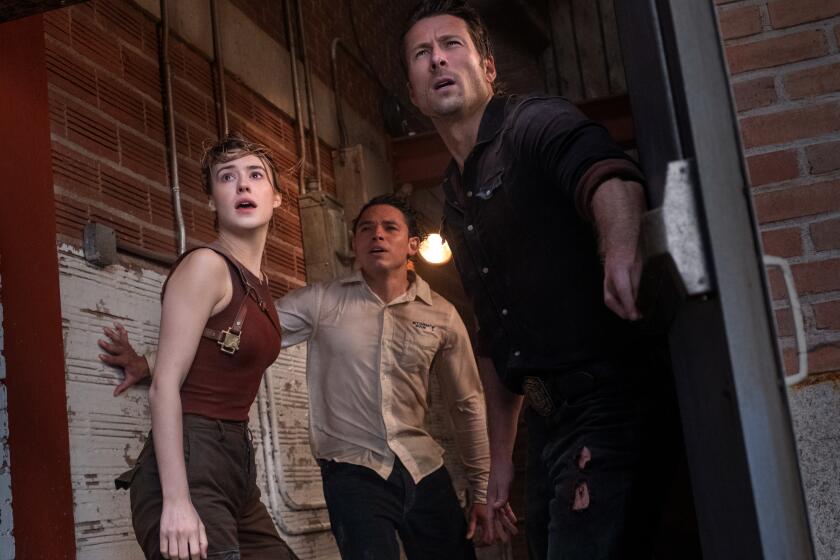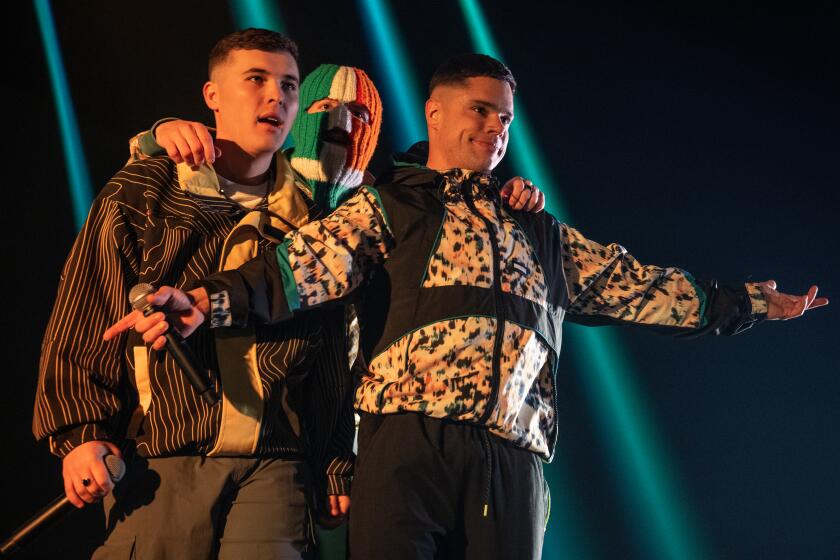Our Diverse 100: Meet Tina Mabry, the director turning negatives into positives
Mabry’s feature film directorial debut in 2009, “Mississippi Damned,” which she also wrote, was a festival circuit success. It won top prizes at a host of them including Outfest, the New York LGBT Film Festival and the American Black Film Festival. Since, she has directed episodes of PBS’ “Futurestates.” She currently is a producer and writer on OWN’s “Queen Sugar.” This Q&A is part of a special series examining diversity in the Academy of Motion Picture Arts and Sciences. Read more profiles here.
What was your reaction to #OscarsSoWhite — the lack of nominees of color and the resulting conversation?
In a sad way, it’s like when we waited for the verdict in the case where Trayvon Martin was killed. I think a lot of people of color knew [George Zimmerman] would probably get off. You can’t prepare yourself for the injustice, but you just know it’s going to happen.
At what point did you know your race, sexuality or gender was impacting your career, positively or negatively?
It works positively and negatively — but I think the negatives of being ostracized or pushed aside have allowed us to share our experiences with each other. We have come together as a community.
Was there a person in the industry that looked like you and made you think this could be a career for you?
Gina Prince-Bythewood and Kimberly Pierce. I saw Gina’s “Love and Basketball” my last year of undergrad at Ole Miss and Kimberly’s “Boys Don’t Cry.” They both represent me as women: one as a black woman and the other as a lesbian. Those two films made me change the trajectory of my career because I was going to go to law school. Growing up in Mississippi, I didn’t think it was possible because I didn’t see anyone that told stories that reflected my communities, my people or stories that were told from the perspective of a filmmaker that happened to be a woman.
What’s your proudest career moment to date?
I have two. The first happened when we screened “Mississippi Damned” at Outfest in 2009. With like 700 people in the audience, a woman who’s almost 70 stands up and says, “I was molested as a kid and never told anybody about it until now. Thank you for making this film because I was afraid to talk about it.” That was something that I didn’t have the words to respond to. My heart was just full. That made me feel like we, as a team, made a good film and and did what we were supposed to do, that cinema really can change someone’s life.
The other one is “Queen Sugar.” To be a producer and writer on a show and be slated to direct, that’s an opportunity I would’ve never got without Ava [DuVernay, executive producer]. She respects good work and is not afraid to speak out. The highlight of “Queen Sugar” hasn’t even begun, but it’s the first job where I’m excited to go to work.
READ MORE: Here are 100 people in Hollywood who could help fix the academy’s diversity problem
Only good movies
Get the Indie Focus newsletter, Mark Olsen's weekly guide to the world of cinema.
You may occasionally receive promotional content from the Los Angeles Times.








